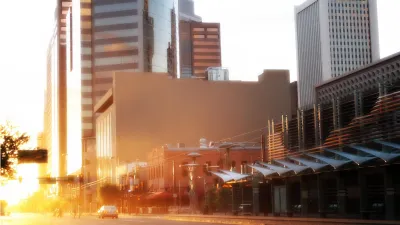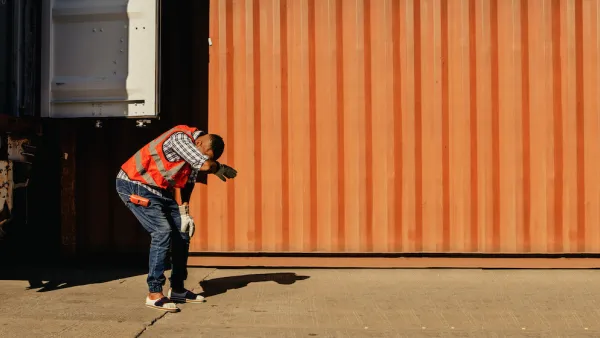As more extreme temperatures lead to an alarming rise in heat-related deaths across the country, Phoenix is taking action with the nation's first public heat response office.

As one of the nation's fastest-warming cities, Phoenix has seen a sharp rise in heat-related deaths as extreme temperatures become more commonplace. To address this growing public health crisis, the city has created the first publicly funded Office of Heat Response and Mitigation to tackle the problem of extreme heat and prevent heat deaths, which reached almost 500 in 2020. Jessica Kutz spoke with David Hondula, the director of the new office, to get a sense of how the city plans to develop a more comprehensive heat mitigation policy.
Hondula says the department will focus on coordinating a variety of short- and long-term heat mitigation strategies with other city departments and prioritizing cooling methods that meet local needs, such as increasing the city's tree canopy, installing cool pavement, and opening cooling centers for residents with no access to safe spaces in the extreme heat.
Hondula acknowledged the unequal heat burden faced by low-income communities, saying that his office will "steer the city’s investments in mitigation and response to the communities where there is the greatest need."
Earlier this year, Phoenix pledged to commit to 'tree equity' by 2030 by planting more trees in underserved neighborhoods and closing the green gap between high-income and low-income communities, where lack of shade exacerbates the effects of extreme heat.
FULL STORY: How to cool one of the fastest-warming cities in the West

National Parks Layoffs Will Cause Communities to Lose Billions
Thousands of essential park workers were laid off this week, just before the busy spring break season.

Retro-silient?: America’s First “Eco-burb,” The Woodlands Turns 50
A master-planned community north of Houston offers lessons on green infrastructure and resilient design, but falls short of its founder’s lofty affordability and walkability goals.

Delivering for America Plan Will Downgrade Mail Service in at Least 49.5 Percent of Zip Codes
Republican and Democrat lawmakers criticize the plan for its disproportionate negative impact on rural communities.

Test News Post 1
This is a summary

Test News Headline 46
Test for the image on the front page.

Balancing Bombs and Butterflies: How the National Guard Protects a Rare Species
The National Guard at Fort Indiantown Gap uses GIS technology and land management strategies to balance military training with conservation efforts, ensuring the survival of the rare eastern regal fritillary butterfly.
Urban Design for Planners 1: Software Tools
This six-course series explores essential urban design concepts using open source software and equips planners with the tools they need to participate fully in the urban design process.
Planning for Universal Design
Learn the tools for implementing Universal Design in planning regulations.
EMC Planning Group, Inc.
Planetizen
Planetizen
Mpact (formerly Rail~Volution)
Great Falls Development Authority, Inc.
HUDs Office of Policy Development and Research
NYU Wagner Graduate School of Public Service





























